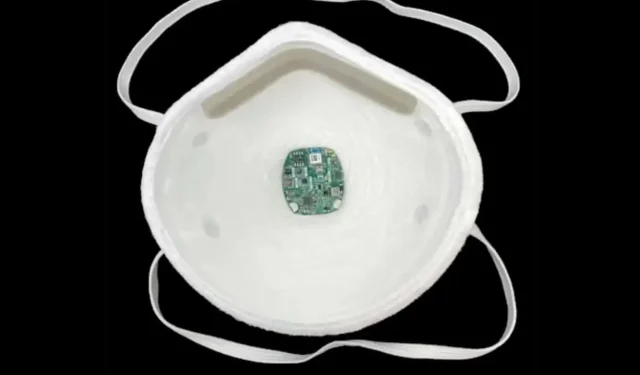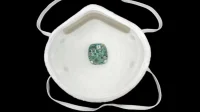FaceBit is a small sensor that fits inside the N95 mask, a sensor that records a certain amount of health data.
Wearing a mask has become commonplace due to the Covid-19 pandemic raging on the planet, but soon these masks can be used for more than “just” protecting yourself and others. Northwestern University researchers (including batteryless Game Boy creator Josiah Hester) have developed FaceBit, a mask sensor that can analyze a range of health constants directly inside a simple N95 mask. Attached by a magnet, it makes it possible, among other things, to determine the heart rate of the mask wearer and even to detect possible leaks or incorrect position of the mask.
FaceBit is a small sensor that can be placed in an N95 mask
These measurements can later help the sensor detect a range of health problems. Heart rate and breathing data can help you determine when you’re stressed and need a break. While the sensor does not replace the N95 mask fit test, it can help you maintain that fit throughout the day.
And it may not be necessary to recharge this sensor. Indeed, while the prototype does have a battery, the sensor uses the power of breathing, heat, movement and the sun to extend the life of the system to 11 days. Josiah Hester even wishes the mask was completely battery-free.
A sensor that records a range of health data
FaceBit has yet to undergo a series of clinical trials and other tests of all kinds before it can be ready for the general public. That being said, Josiah Hester’s team has already released the project’s code and various components to help those interested in building it and testing it out. While you probably won’t buy one for yourself, this little innovation could be of great interest to hospitals that want to keep their staff safe throughout the day.


